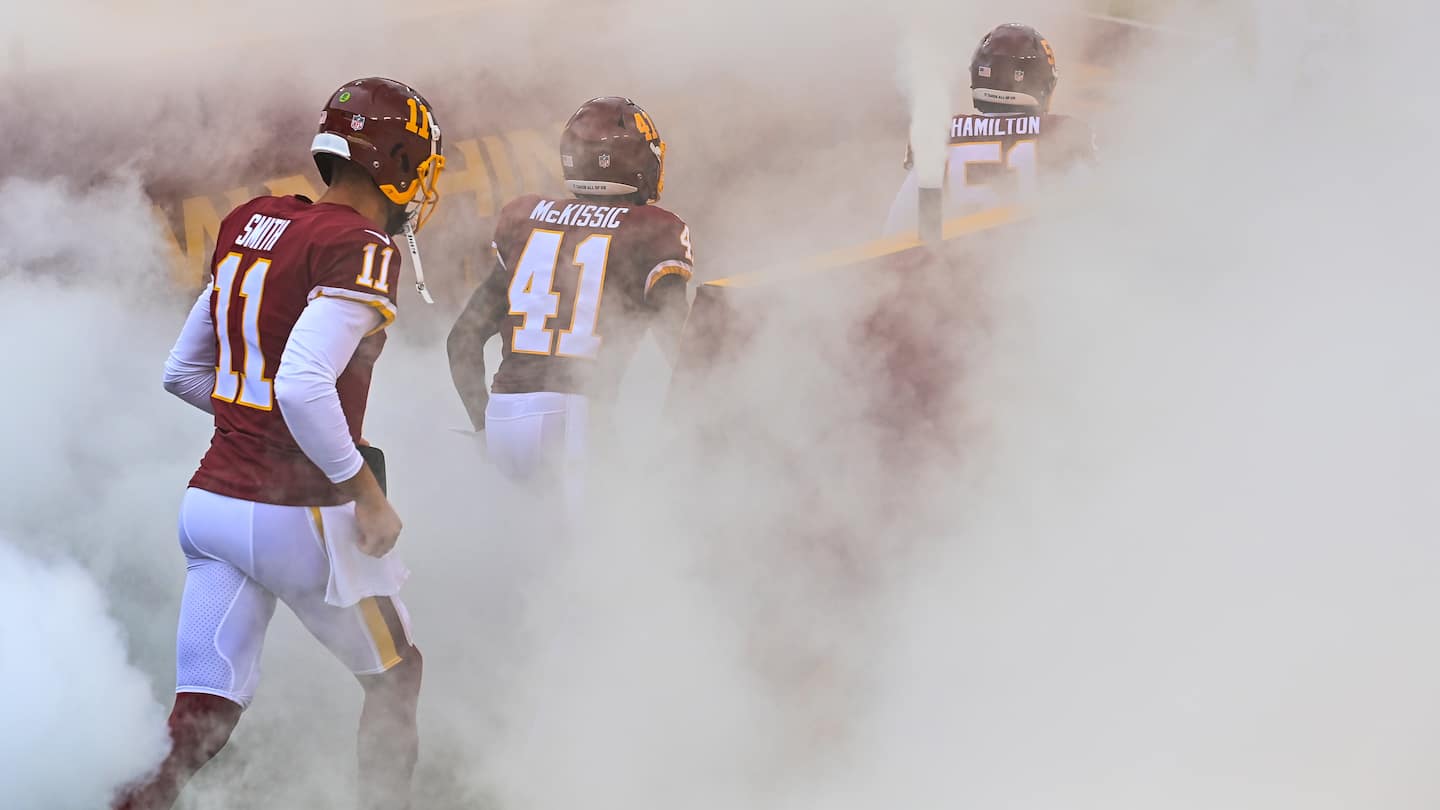Alex Smith’s comeback is confounding. It took his wife, Elizabeth, a while to understand, too.

The last thing anyone wanted to see was Smith break again the first time he fell under a crush of 300-pound men.
So, yes, Elizabeth Smith could grasp the horror everyone felt about her husband’s slow climb back to football, even as she pushed out sunny Instagram posts of Alex in a wheelchair, Alex in a cast, Alex walking, Alex running, Alex throwing, Alex working toward the return most people seemed to dread. What man does something like this? What was the point?
“I didn’t get it for the longest time, [either],” she said.
Then she said this:
“Knowing how much an injury like this can affect a person mentally, physically and emotionally, for Alex to overcome that and get himself back to the point where he can be bigger than any of this is amazing.”
In the few interviews Smith has given about his comeback, he has talked about building up “walls” then banging through them as he attacked each obstacle, finding a way to beat it until he couldn’t stop. At his one news conference this past summer, he compared his zeal to play again to “running a marathon and getting close to the end of the race,” where the need to finish drove him even more.
“People need to understand Alex sets goals in front of him and it’s always just knocking down the next one and the next one,” Elizabeth Smith said.
She thought about the game he had just played, the last two minutes of the first half and all of the second in a 30-10 loss to the Los Angeles Rams in which he replaced injured starter Kyle Allen, and she knew that night would not be one of celebration. Instead, her husband would want to lie in bed as he always did when playing in the past, watching the game over and over, studying the screen for flaws, trying to understand what it was that had gone wrong.
“Alex’s mind-set is: Get the win,” she said. “So you need to know Alex is just going to keep pushing through until he can get himself back to winning football games.”
In the weeks after Smith’s right leg snapped when he was sacked by Houston’s J.J. Watt and Kareem Jackson on Nov. 18, 2018, those around the team who quietly proclaimed the injury career-ending always added some form of the same caveat: If anyone can come back, it’s Alex. Though he had been with Washington for less than a year, his competitiveness was already legendary in the locker room, where players spoke with awe about the way he fought for first downs in casual, meaningless offseason practices.
Smith, given the benefit of modern surgical techniques and better equipment as well as the financial resources to afford the best doctors and trainers, had the tiniest of chances. But what struck Theismann most was that Smith had the desire to play again. Most people in Smith’s situation find a way to talk themselves out of the impossible. Smith was the one person who needed to conquer it.
“I know how hard he worked and how important it was to him,” Theismann said Sunday, while watching the game from Memphis. His emphasis was on the word “important.”
This can’t be about money. Alex Smith already has made close to $200 million. He is already wealthy in a way very few professional football players will ever be. It’s strange the way many football players can’t quit a game that destroys their bodies, leaving many to walk through the rest of their lives with a lurching gait. And yet, he doesn’t seem so addicted to football that leaving the sport would be impossible.
Instead, his push to play again has been driven by the compulsion to finish a checklist too daunting for most to try, charging forward until every square has been filled with an “X.”
“Honestly, if Alex never played a game but he worked as hard as he could to get to that point and it just wasn’t in his control, I think he’d be okay with that,” Elizabeth Smith said. “But if he had given in — [and] there were countless days in the middle of it when you want to give up — he would have had a hard time with it, you know?”
The “you know?” was rhetorical, and yet it loomed large in the damp concrete concourse. Her husband had just played a football game again on a leg that doctors had nearly carved clean to the bone to stop a vicious infection. He had worked relentlessly for nearly two years for this chance. No matter what happens in the rest of his career, whether it’s a week or three more years, his comeback is something most people will not understand, even if it was something he absolutely had to do.
More Washington NFL coverage:






